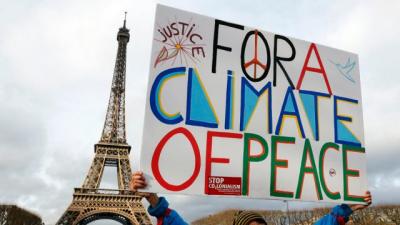MANAGUA, Oct 24, 2017 (BSS/AFP) – Nicaragua signed the Paris climate agreement Monday, leaving the United States and Syria as the only two holdouts on the global climate pact.
The government of President Daniel Ortega said the global 2015 pact represented “the only international instrument that offers the conditions to face global warming and its effects,” according to a statement read out by Vice President Rosario Murillo.
Monday’s announcement leaves the United States and Syria as the only countries holding out on the Paris deal, which set measures to reduce greenhouse gas emissions to prevent temperatures rising by more than two degrees.
US President Donald Trump in June announced the start of a three-year process to pull out of the agreement on the grounds that it would put the US at an economic disadvantage.
Ortega said last week that Nicaragua would sign the pact, but did not say when.
The tiny central American country had previously refused to sign the agreement on the grounds that it did not go far enough to combat global warming.
“We welcome Nicaragua’s announcement, which further underscores the commitment of the international community to take full responsibility for our shared planet,” said Elliott Harris, assistant secretary-general of the UN environment program.
“We must all continue to step up our individual and collective efforts to face climate change, one of the greatest challenges of our time.”
– Weather threat –
In September, the leftist Ortega announced during a private meeting with World Bank directors in Managua that his country would join the agreement, but the news was later removed from the official government website without explanation.
In its statement announcing the decision Nicaragua noted the dangers of more frequent natural disasters with “high costs, loss of lives and increasing material damage.”
The Central American country’s move to join the pact comes just weeks after tropical storm Nate struck the region, highlighting the vulnerability of Nicaragua and its neighbors to the effects of climate change.
The storm unleashed heavy rains that triggered floods and mudslides, cutting a path of destruction that flattened houses and destroyed roads and bridges.
Nate left at least 32 in Central America, 15 of them in Nicaragua, the hardest hit.
The Nicaraguan environmental organization Centro Humboldt praised its country’s move to join the global pact.
“We applaud this decision,” the organization’s director, Victor Campos, told AFP. “We had asked them to support the accord and we are very happy with the decision.”
He said the government must now define how Nicaragua will participate, and his organization plans to urge developing a national plan concerning climate change.



